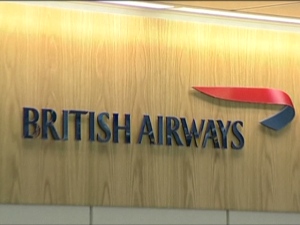Today came the news that the Unite union has lost its High Court action to try and overturn British Airways’ attacks on staff. Yet after BA’s court injunction stopping a Christmas strike, a new ballot for action continues, as Gregor Gall reports.
Unite, and its cabin crew branch, BASSA, are currently locked in a truly titanic battle with BA. Unite is reballoting for strike action, with the result due on 22nd February.
The litany of what BA has engaged in to break the cabin crew’s will to resist has got longer and longer. Since the New Year, this has included recruiting strike-breakers from existing employees, threatening to end benefits of strikers and encouraging the establishment of a yellow union, the Professional Cabin Crew Council.
BA workers are rightly asking why they should have to carry the can for the slide in the financial fortunes of the company. They have continued to work just as hard and conscientiously as before.
And, ironically, one of the reasons why the cabin crew is so up in arms about the company’s cost-saving package is that having less staff on flights is reducing the quality of service and will mean fewer passengers booking with BA.
The answer to the BA workers’ question is that there is no justification for the company’s attempt to make them carry the can other than the company’s will and might to make them do so.
In spite of its size and influence, BA’s realisation of profit is largely dependent upon a number of things outside its control, including security alerts and economic growth in terms of passenger numbers, landing fees and cost of fuel.
So BA tries to use its labour costs – comprising workers’ wages, benefits and so on – as the shock absorbers to deal with this. To put it bluntly, BA takes what it cannot control and responds with what it can control. This is the way it tries to square the proverbial circle. Just about the only thing that stands in BA’s way to do so is workers’ collective will and organisation to resist.
The particular problem facing BA is that pretty much all its competitors were set up with non-unionised workers so their labour costs are much lower.
Indeed, under the act of parliament that created BA, it was required to recognise unions. This continued until BA was privatised, but by then the unions had established their power.
So BA is trying to force its workers to accept the logic of the ‘race to the bottom’: if others pay less, so must it. The task facing BA workers is not just to resist the company in the here and now but do what they can through Unite to further raise up the terms and conditions of their fellow workers in the other airlines.
The lesson is that the stronger must pull up the weaker and not let the weaker pull down the stronger.
Clearly then, a lot hinges on the outcome of the ballot and how a possible mandate for action is used to stop – or at least slow down – the race to the bottom.
